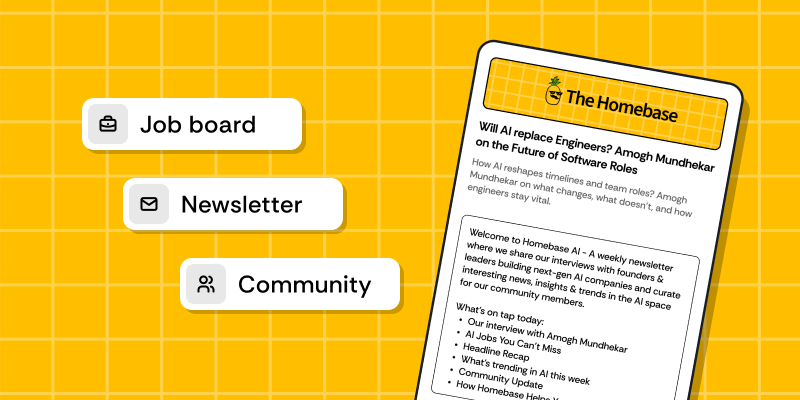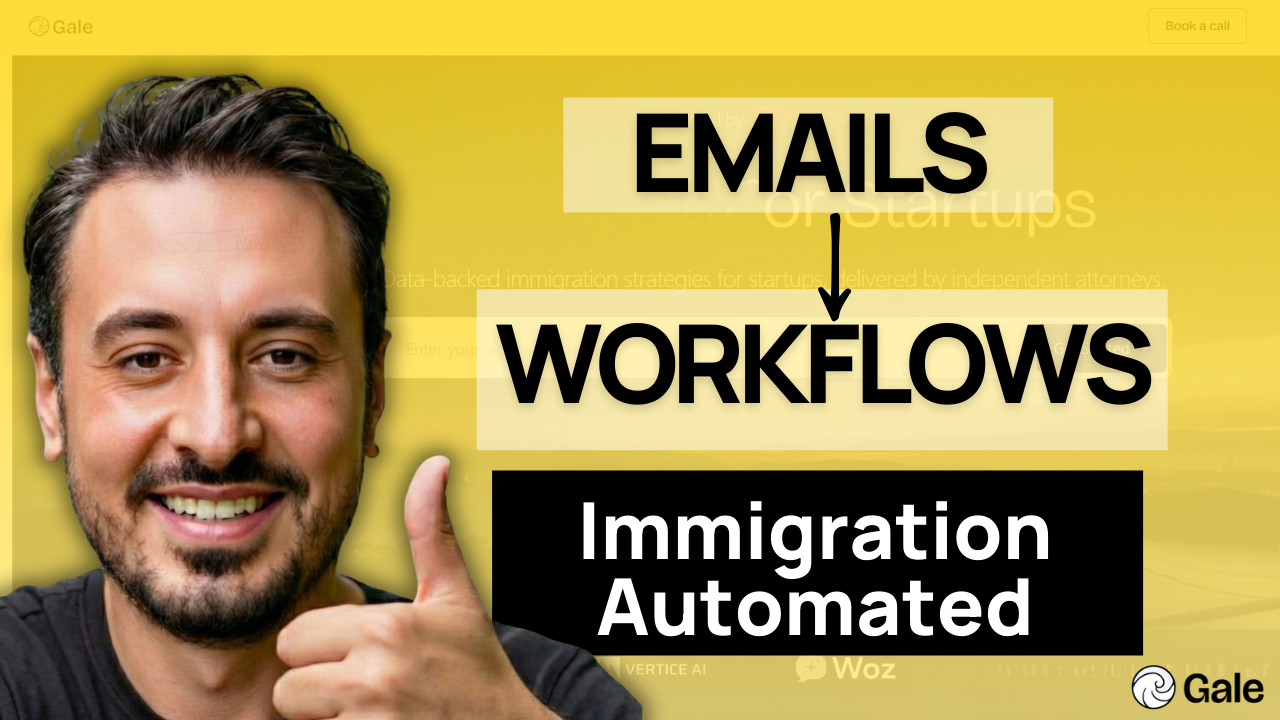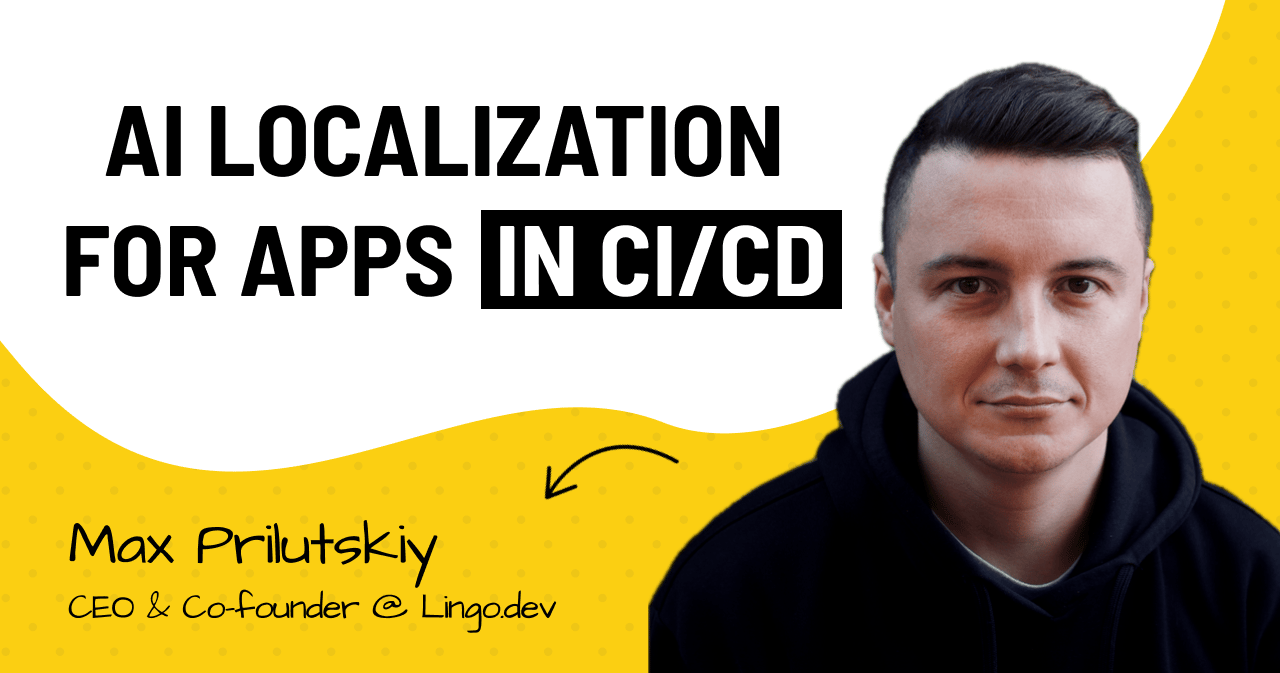From online memes to major income: the tale of a 3-person team's leap to profit, using a 50k+ social following to secure early success.

Key Highlights:
- MVP in 3 weeks, just 2 devs
- Profitable from month 2, steady growth
- 1,500 daily signups leveraging AI/brands
- Zero marketing dollars spent
- Remote, lean communication
- Instincts trumped excessive research
- Prioritized support, sales, key touch points
- Debunked lean team success myths
- Aiming to be the internet's meme engine
Here’s our latest Supermeme AI interview story, insights from founders Ramsri, Nico, and Sanjeev.
Hello! Tell us who you are and what’s your backstory.
I started my career in customer support about a decade back and since then I’ve spent about 2 years in sales, marketing, and product management. The current journey of Supermeme.ai started as a side-project and then later attracted more time. I enjoy building solutions that people use. That’s my biggest driver to build products and become a founder.
Can you give us your 1-3 sentence elevator pitch?
For marketers, influencers, and educators who want to infuse humor into their marketing, they can simply enter a text input and get memes.
What was the moment or situation that sparked the idea for your business?
We saw that memes were getting traction and were effective as a marketing artifact. It helps break through the noise from all the other monotonous marketing channels. However, meme creation as a concept seemed very hard. Hence, we decided to simplify the process of meme creation.
How did you test and refine your initial product idea, and were there any significant pivots or changes in direction based on initial feedback or market response?
We spent about 2 weeks building out the prototype. Thanks to our combined social media following of over 50k, we were able to get quick validation of our idea and even our earliest customers.
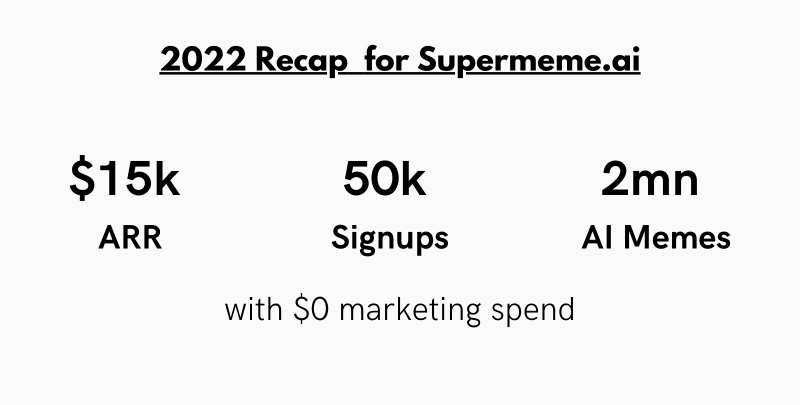
What specific strategies or decisions significantly contributed to the growth and scaling of your business?
To start with our personal brand on social media. From there, we launched on Product Hunt. The biggest growth lever was riding the AI wave. The popularity of AI tools grew and along with it grew our popularity as well. Currently, we’re generating about 1500 signups a day.
Can you share some major challenges and how you tackled them?
Since meme marketing is a new concept, we are expected to educate the market on what it really is.
How did you really get to know your customers and market?
Since I’ve been a marketer myself and I’ve extensively used memes in my marketing, it was not that hard.
What's the story behind your brand and marketing approach?
Our vision is to break the monotony in marketing and humor is the hammer we choose. We want to democratize meme creation. We want to make it easy for everyone to create and share memes. While our focus is on marketing teams, we believe that every individual has something to market. We want to make it easy for them to use humor in their communication.
How did you attract and secure your first customers?
We marketed directly on social media and got our first customers from there.
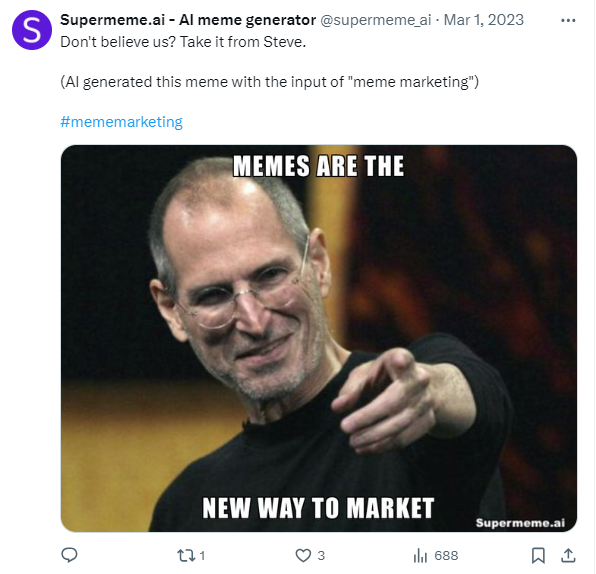
What's been your approach to product development?
We're bootstrapped remote team members of 3. So we cannot afford to build every feature we can think of. At the same time, we also don’t have clear direction coming from customers because it’s a relatively newer product for them. So, we base most of our decisions on our gut and back ourselves that it’s the right decision to make.
How have you navigated the financial aspects of your business?
We’ve kept it nimble by managing the finances ourselves with a keen focus on profitability. We’ve been profitable from the second month and growing at a steady pace.
What future do you envision for your company?
We want to be the default meme generator of the internet.
Is your team growing? Tell us about the roles you’re looking to fill.
We plan to stay a 3 member remote bootstrapped team for as long as we can imagine.
Where can curious minds find more information about your business?
You can read about our vision here.
Do you have any reflections or insights you’d like to share with our community?
Building Supermeme.ai with Ramsri and Nico has been extremely rewarding. More importantly, it broke every myth about software building that I had believed in earlier. It made me look at SaaS very differently. Here's some of it.
1) "You need a large team to build software.”
3 of us. I'm useless as a developer. So we were able to build and scale Supermeme.ai with just 2 developers building remotely.
2) "You need at least 1 year to build an MVP"
3 weeks. We launched. It wasn't perfect obviously. But it worked and it got us our first $
3) "You need to have a very strong close relationship with your co-founders"
Nico, Ramsri, and I get on a Zoom call twice a month and every other communication is async via WhatsApp group. Outside of that, there's almost no communication and I don't know much about them. This relationship works for us.
4) "You'll need to demo the product personally to 50 people before they buy"
We never got on calls to demo. There was no sales call too. All the people who bought Supermeme.ai bought it because they signed up, saw value in the product, and decided to put their card details in
5) "You have to spend a lot on marketing"
$0 spent and something I'm personally proud of. Maybe we got lucky but I'm confident that spending $ on marketing is not the only way to get leads
6) "You have to spend every minute working on your startup"
All 3 of us are working on this part-time. Supermeme.ai bought me time to explore things that I wouldn't have been able to explore otherwise.
7) "You need to invest a lot of money upfront"
Apart from buying the domain, we didn't spend any money from our pockets. Supermeme pays the bill for itself.
8) "You need to do market research and user research"
I spoke to a few marketers to start with but what's really worked for us is following our instincts.
9) "As you scale users, you need to have a support and sales team"
Sure, we don't respond to every chat or email but I've always found time to respond to important chats and emails. Operating with this constraint helped us really decide what is important to respond to. I'm sure things might have been different (for good or bad) if we had followed some of the things but I'm happy with where we are given the tradeoffs.
